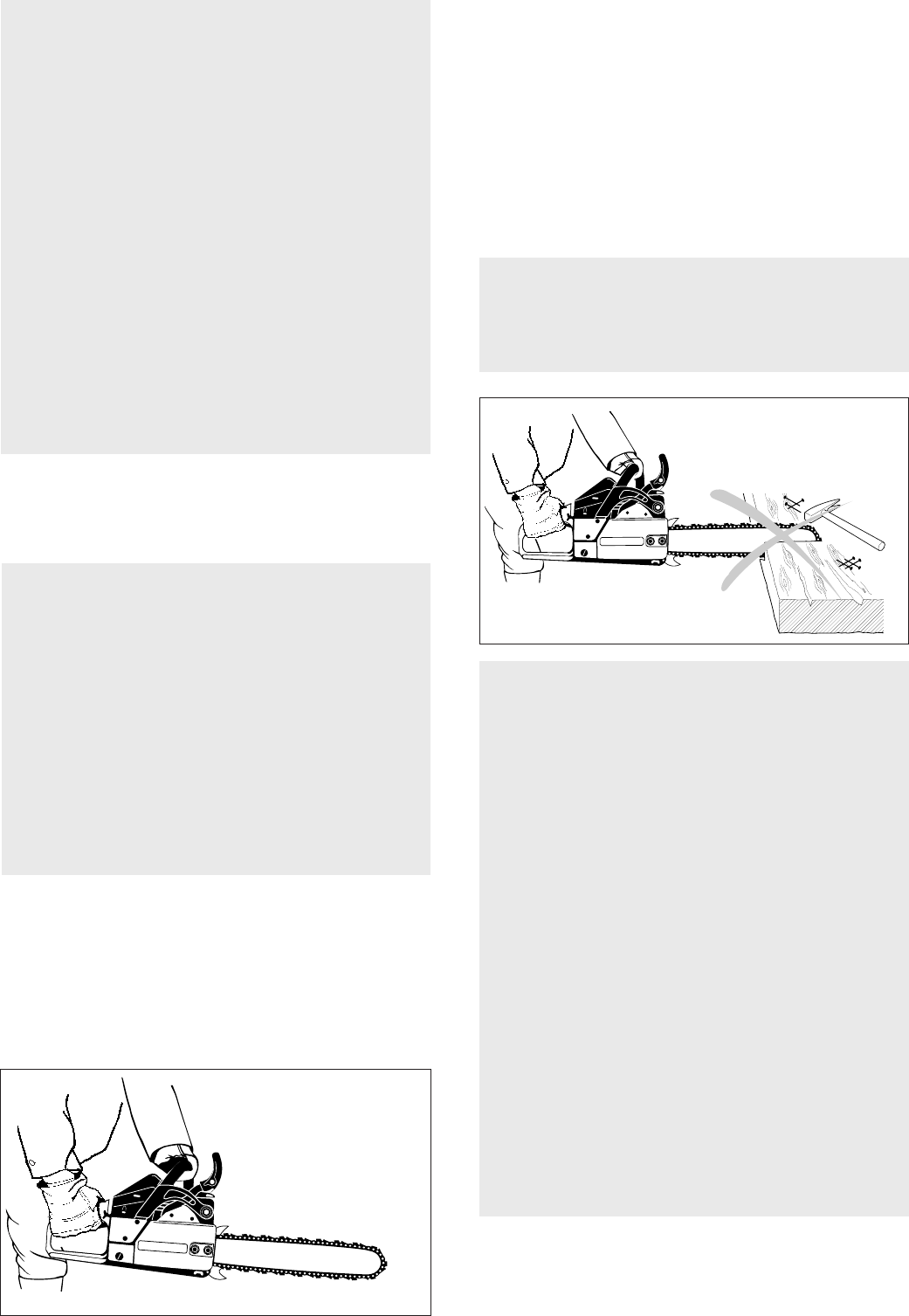
9
Important adjustments
WARNING!
At correct idle speed, chain should not turn. For di-
rections to adjust idle speed, see the appropriate
section of this instruction manual.
Do not use a saw with incorrect idle speed adjust-
ment. Adjust the idle speed yourself according to
the appropriate section of this manual.
Have your MAKITA dealer check your saw and
make proper adjustments or repairs.
Check the saw chain tension frequently, especially
just after installing a new chain. New chains may
stretch more during their initial use. A properly
adjusted saw chain can be pulled freely around the
guide bar by hand without sagging. Always stop
the engine and wear gloves when checking or
adjusting the chain tension.
Working conditions
Operate your chain saw only outdoors. Operate the
saw under good visibility and daylight conditions only.
WARNING!
Take extreme care in wet and freezing weather
(rain, snow, ice). Put off the work when the weather
is windy, stormy or rainfall is heavy. Clear the area
where you are working.
WARNING!
Avoid stumbling on obstacles such as stumps,
roots or rocks and watch out for holes or ditches.
Be extremely cautious when working on slopes or
uneven ground. There is increased danger of slip-
ping on freshly debarked logs.
Cutting instructions
Always hold the saw firmly with both hands when the
engine is running. Place your left hand on the tubular
handle and your right hand on grip and throttle lever.
Left-handers should follow these instructions too.
8
7
WARNING!
Do not operate your chain saw in semi-throttle
position. Cutting in this position does not permit
the operator proper control of the saw or chain
speed.
WARNING!
Never come too close to a rotating chain with your
hands or body.
WARNING!
Do not cut any material other than wood or
wooden objects.
Use your chain saw for cutting only. It is not
designed for prying or shoveling away limbs, roots
or other objects.
When sawing, make sure that the saw chain does
not touch any foreign materials such as rocks,
nails and the like (fig. 8). Such objects may be flung
off, damage the saw chain or cause the saw to
kickback.
Wrap your fingers tightly around the handles, keeping
the handles cradled between your thumb and forefin-
ger (fig. 7). With your hands in this position, you can
best oppose and absorb the push, pull and kickback
forces of your saw without having it slip out of your
grip (see section of reactive forces). Make sure your
chain saw handle and grip are in good condition and
free of moisture, pitch, oil or grease.
Always start a cut with the chain running at full speed
and the spike bar in contact with the wood.
WARNING!
Never use the saw with one hand. You cannot
control reactive forces (see pages 10 to 12) and
may lose control of the saw.


















